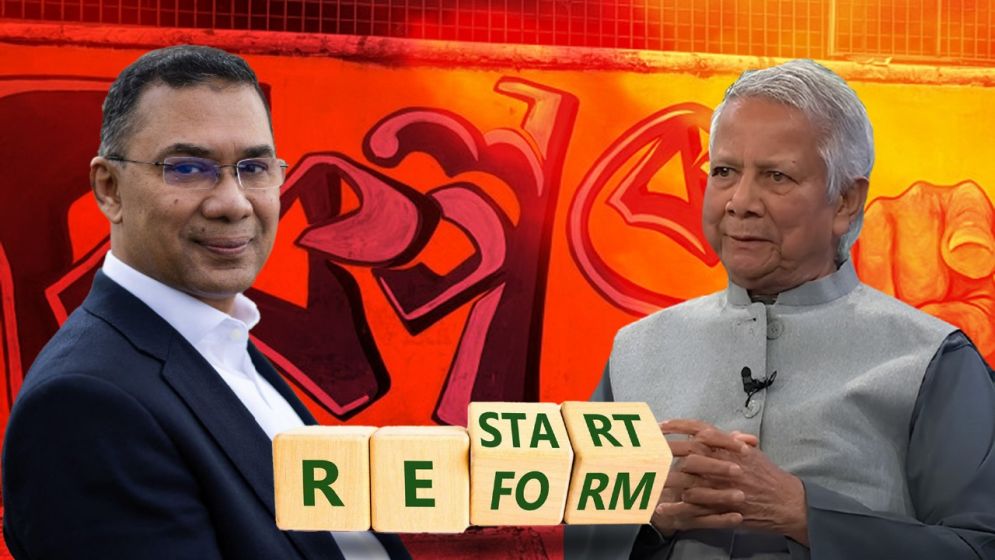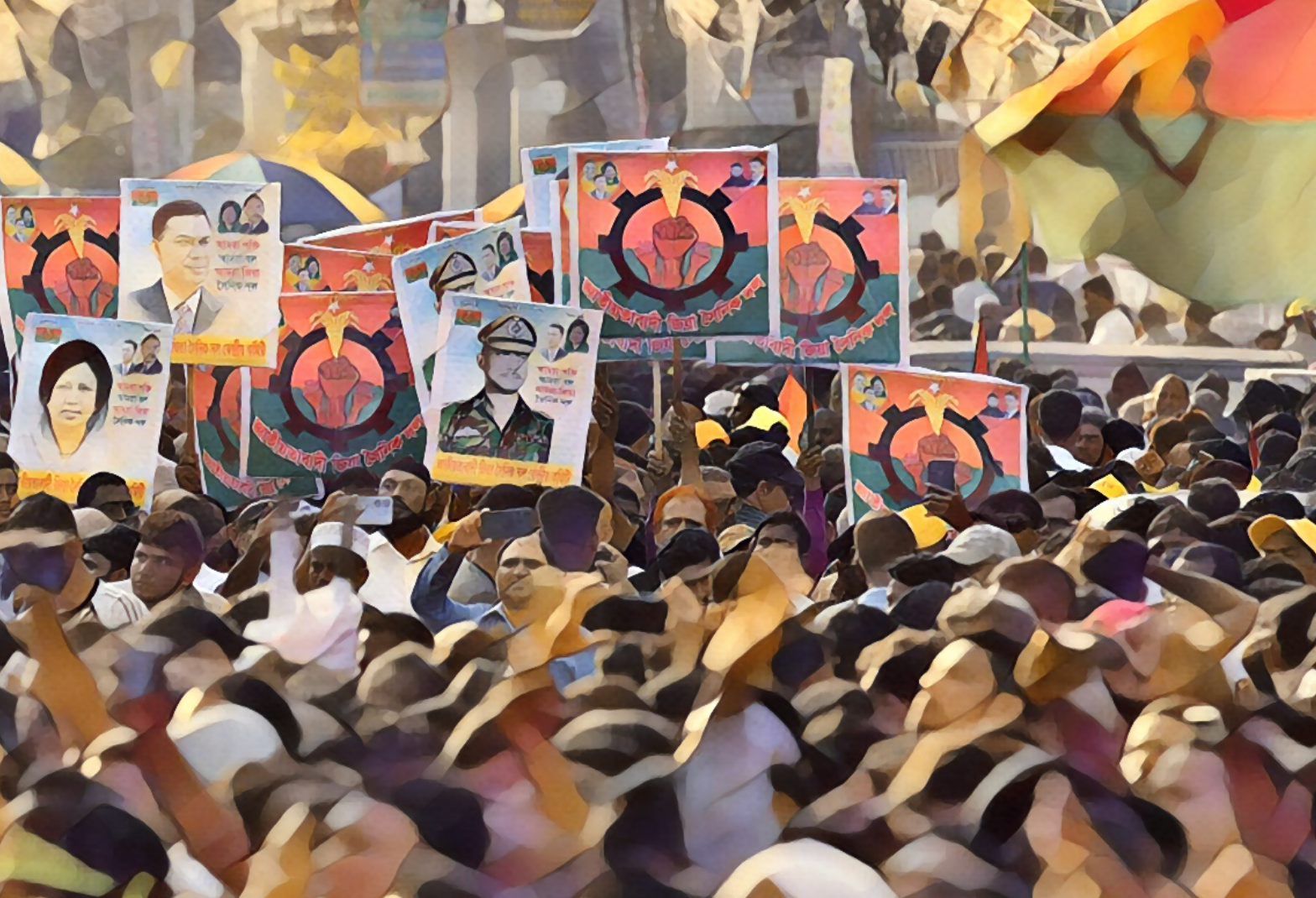Deadline or disruption: BNP draws a line in the sand over election timing

As monsoon rains flood Dhaka’s streets and shutter its residential neighbourhoods, Bangladesh finds itself in the throes of a far more consequential tempest–one not of weather, but of politics.
The interim government led by Nobel laureate Dr Muhammad Yunus is locked in a deepening confrontation with the opposition Bangladesh Nationalist Party (BNP), and the outcome could define the nation’s democratic future.
At the heart of the standoff lies a single, explosive question: When will Bangladesh vote?
The BNP, sensing opportunity in the political vacuum left by the ousted Awami League, has drawn a hard line–demanding general elections by December.
Anything later, they warn, would be unacceptable.
Dr Yunus, meanwhile, is holding firm. He insists that meaningful electoral and institutional reforms must come first, and his caretaker administration is now probably eyeing June 2026 for the next vote.
“There is no shortcut to stability,” Yunus declared at Tokyo’s Nikkei Forum this week, seeking to reassure an international audience of his neutrality and long view. But on the ground in Bangladesh, patience is in short supply–and his timeline is seen less as statesmanship than stonewalling.
BNP’s acting chairman, Tarique Rahman, gave voice to the rising fury during a fiery address to thousands in Dhaka’s Nayapaltan district from his London home. “There must be elections by December,” he thundered. “No delays. No excuses.”
Party officials have begun mobilizing. Nationwide protests are being prepared. What began as public pressure is rapidly transforming into a political siege.

Tension on the streets
The tension has already spilled into the streets. For over two weeks, supporters of BNP’s Ishraque Hossain have camped outside Dhaka’s Nagar Bhaban, the city’s South Corporation headquarters, demanding he be sworn in as mayor.
Though he recently won a court battle affirming his electoral victory, the building remains locked, the administration unresponsive, and the protesters undeterred.
They chant in pouring rain, “Swear in Ishraque now!” The sit-in, once municipal in scope, has taken on national significance–a symbol of mounting frustration with a caretaker regime perceived as paralyzed by caution, or worse, complicit in delay.
“This is not just about a mayor,” one protestor told Bangla Outlook. “It’s about our right to choose who governs us.”
The government has offered no comment. But political analysts warn that this confrontation could spiral into a legitimacy crisis. For Dr Yunus–once hailed as a reformer above the political fray–the silence is becoming deafening.
In recent weeks, Professor Yunus has scrambled to contain the political brushfire. Behind closed doors, he’s met with leaders from 22 political parties, a bid to project calm after reports emerged that he had contemplated stepping down.
According to government sources, those meetings averted immediate collapse–but only just. The real impasse remains unresolved, and it lies where it always has: with the BNP and the military.
Whispers out of cantonment walls now carry the weight of political consequence. General Waqar-uz-Zaman, the army chief, is said to have privately endorsed a December election during a confidential briefing with top officers earlier this month–just days after BNP's mass rally gridlocked Dhaka.
The message, though not public, has been heard loud and clear across the capital: Dr Yunus no longer holds a monopoly on institutional patience.
“The government is breathing, but it’s short of oxygen,” said political analyst Zahed-ur-Rahman. “The BNP smells blood. And the military’s tolerance for drift is finite.”

A cornered administration
The Yunus administration appears increasingly cornered.
A statement from the interim advisory council last week warned of “coordinated attempts to destabilize the government,” blaming unnamed actors “fueled by defeated domestic forces and foreign conspiracies.”
It was a broadside with barely concealed targets–BNP leaders interpreted it as both threat and indictment.
At the core of the BNP’s defiance lies cold calculation. With the Awami League ousted and the left splintered, they see the field wide open–and they intend to seize it.
“We are on the doorstep of the government,” one senior strategist of BNP told Bangla Outlook. “And we won’t let Yunus or anyone else shut that door in December.”
But signs of hubris are already creeping in. Reports from rural districts speak of BNP-aligned activists engaging in turf skirmishes, extortion, even vigilante justice.
The party’s central committee has moved to expel or discipline several operatives, yet the momentum remains unmistakably on its side. The prospect of returning to power after years in the wilderness has injected the party with a mix of urgency and entitlement.
Complicating the landscape further are suspicions that Yunus is playing favorites. BNP officials accuse him of tacitly backing the National Citizen Party (NCP), a newly formed centrist group pushing for elections only after a full reckoning with past graft–most of it associated with the now-defunct Awami League.
To the BNP, it reeks of delay by design: a strategic hedge meant to undercut their surge.
Meanwhile, Islamist factions like Jamaat-e-Islami are hedging their bets, maintaining a studious distance from the crisis–quietly critical of Yunus, yet equally reluctant to ally openly with the BNP. The result is a fractured political chessboard, with too many players and no fixed rules.
“A web of conspiracies is forming,” BNP leader Mirza Abbas warned this week. “And we will resist them all.”
—

